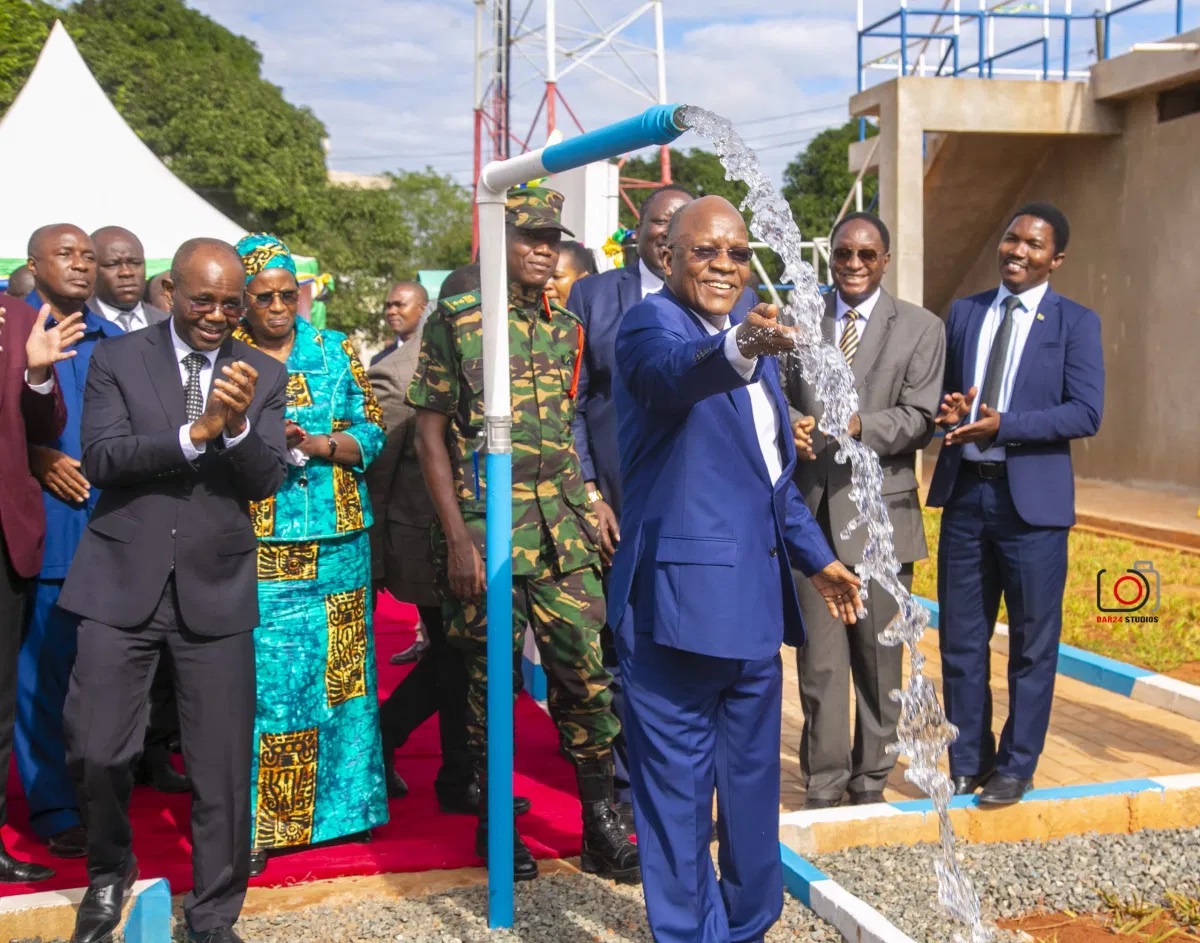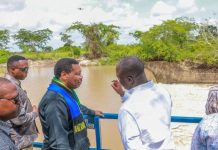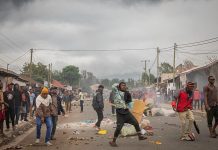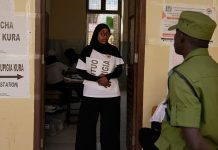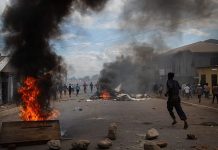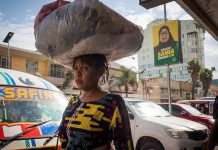Author: MARY RAMADHANI
AfricaPress-Tanzania: UNDER the chairmanship of President John Magufuli, the ruling party, Chama Cha Mapinduzi (CCM) has effectively implemented the party’s 2015-2020 election manifesto by increasing access to water services across the country.
The government’s boldness and ambitious goals have registered great progress in the water sector, with accessibility of clean and safe water rising in both rural and urban areas, whereby several mega water projects have been completed while others are in their final stages of completion.
All projects are targeting to achieve the government’s set target of 95 and 85 per cent of people with access to safe and clean water in urban and rural areas by 2020, respectively.
Several efforts have been made by the government, to ensure the target is to a great extent met.
Among the efforts was the establishment of a campaign dubbed ‘Kumtua Mama Ndoo Kichwani’, which saw mega water projects flourishing.
The campaign has eased water scarcity in the country’s highly populated Dar es Salaam Region and the neighbouring Coast Region, which in the recent past faced severe water woes.
The authority has executed various mega water projects, which, to many people, had seemed impossible to attain.
The government, in collaboration with development partners, continued to implement projects to improve access to water services in regional capitals, district capitals, small towns and at national level. The tasks implemented include building, renovating and expanding clean and safe infrastructures.
In the wake of the efforts, access to clean and safe water in rural areas has increased from 47 per cent in 2015 to 70.1 per cent in 2020; and in urban areas from 74 per cent in 2015 to 84 per cent in 2020.
The president stated that during his tenure, 1,423 water projects have been implemented, of which 1,268 are rural and 155 are urban.
Major projects being implemented are the water supply from Lake Victoria to Nzega, Tabora and Igunga, the Arusha water project as well as the project to deliver water to 28 cities being completed at a cost of 1.2tri/-.
He noted that the achievements are part of the fulfillment of pledges made in the 2015-2020 ruling party’s CCM manifesto.
DAWASA Chief Executive, Engineer Cyprian Luhemeja, disclosed that the implementation of those projects have enabled the authority to raise the percentage of water access to residents of the city of Dar es Salaam from 68 to 88 per cent and 123,000 connections to 326,000 respectively.
Eng Luhemeja also unveiled that water access services in Coast Region which has currently been characterised as the hub of industries, has reached potential areas, including Kibaha, Bagamoyo, Mkuranga, Chalinze and Kisarawe, aiming at boosting the economic growth as well as tackling water blues to a great extent.
Other cost-cutting measures are among key moves that have yielded positive impacts in the supply of water across the country.
They are part of major reforms that have been implemented during the first five years of President Magufuli in an effort to provide improved access to clean and safe water in rural and urban areas.
The achievements have come at the expense of various bold decisions, like the merging of Dawasa and Dar es Salaam Water and Sewerage Company (Dawasco) in September 2018 and continued to perform functions and duties as specified in the Dawasa Act number 20 of 2001.
The merging of two bodies was aimed at improving efficiency and reducing operational costs so as to increase supply of safe and clean water and control outbreaks of waterborne diseases.
Deputy Minister for Water, Mr Jumaa Aweso, was quoted as advising the two bodies to embrace the spirit of hard work as the decision to merge the two are aimed at improving supply of the precious liquid in their areas of jurisdiction.
According to the Permanent Secretary, Prof Kitila Mkumbo, the smooth merging of Dawasa and Dawasco to become Dawasa, serving Dar es Salaam and Coast Region is among key achievements by the ministry in the history of Tanzania, as now access to clean and safe water in rural areas has increased.
He said the merging has improved service delivery and the trimming down has been smoothly undertaken without disturbing the utilities’ operations.
“We have changed laws to that effect and it has come to our attention that the merger has contributed to a number of achievements in the water sector for the past five years,” noted Prof Mkumbo.
Projects which have been implemented by the authority to ensure areas which have been hit by water scarcity for quite a long time are reached by the DAWASA network, include the Kibamba-Kisarawe water project, which contains a six million litres water storage reservoir worth 10.6bn/- constructed and launched recently by President Magufuli.
The project surpassed Kisarawe’s water demand of 1.2 million litres per day and has enabled over 1,300 residents of the district to get connected to the reliable water network, making precious liquid woes become a thing of the past to residents.
DAWASA has also been working on improving the sewerage and sanitation system in Dar es Salaam city, whereby it is expecting to launch a mega project of constructing contemporary sewerage plants as part of its effort to ease sewerage congestion in the city.
The report unveils that the authority will launch three projects of constructing modern sewerage plants at Jangwani, Kurasini and Mbezi Beach areas as part of extending sewerage network coverage in the city especially in the areas which are not in the network.
The Dar es Salaam city official sewerage network only covers 10 per cent and the three projects to be established in Jangwani with the capacity of 200,000 litres per day, Mbezi Beach (16,000) and Kurasini (12,000) respectively, will enable DAWASA to expand the network to 30 per cent after the first phase of the projects.
There are many other strategic mega projects which are being implemented by DAWASA for the year 2019/2020, aiming at implementing government projections of ensuring that 95 per cent of people living in urban and 85 per cent in rural areas have water access by the end of the year 2020.


